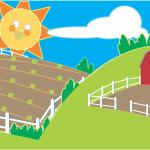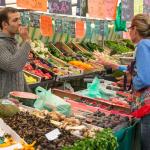Mainstream science reporting is generally awful.
farming
King Solomon may have gained some of his famed wisdom from an unlikely source – ants.
Almost three decades ago, activist groups began making all sorts of troubling predictions about the dangers of growing genetically engineered (GE) crops.
Food production takes a toll on the environment.
We at ACSH never write articles about TikTok fashion celebrities or the benefits of sticking metal rods
Unscientific nonsense proliferates across the internet. Amplified by celebrities, activist groups, and other assorted ideologues, this misinformation surrounding issues like vaccines and crop biotechnology leads many unsuspecting readers astray.
Research going back many years has clearly documented that organic farming tends to require more land while producing less food than its conventional counterpart.
If you remember your high-school US history class, you know that prohibition was an abject failure.
If there's one thing everyone should know about science, it's this: what the evidence shows about a topic and what the public is told the evidence shows are often very different things.
By Rob Shewfelt
The Wizard and the Prophet: Two Remarkable Scientists and Their Dueling Visions to Shape Tomorrow’s World as reviewed by Robert L. Shewfelt












